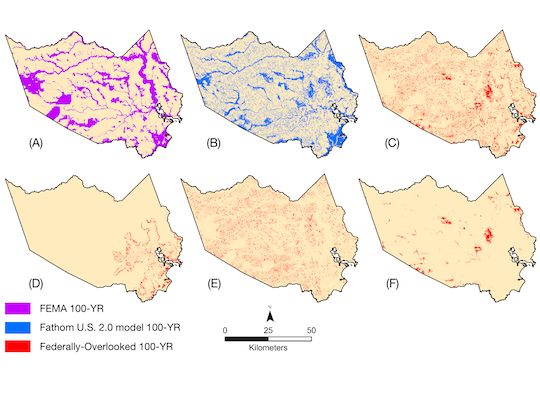
As we look back on Hurricanes Harvey and Katrina, Rice University experts say much of the region’s flood risk still sits outside federally mapped zones. The perspective draws on published research in Population and Environment by Rice’s Yilei Yu and colleagues from Arizona State University that analyzes flood risk at the building level in Harris County.
Federal Emergency Management Agency (FEMA) lines are vital for permits and insurance, but they don’t always capture rainfall flooding, which can overwhelm streets and storm drains far from bayous. Yu’s team used building-level data and modern matching methods to compare similar homes inside and outside mapped zones. They found big differences where the maps go quiet: older and lower-quality buildings, lower insurance coverage and a higher share of Black and Hispanic neighborhoods. That combination means greater exposure and tougher recoveries when slow-moving storms park over Houston.

“Flood risk in Houston isn’t confined to the bayous or the coast. Intense rainfall can overwhelm streets and drainage far from the blue lines,” said Yu, a researcher with Rice’s Center for Coastal Futures and Adaptive Resilience (CFAR). “Our building-level approach shows where rainfall-driven risk and social vulnerability overlap, providing information that communities can use to prepare.”
By the numbers for Harris County:
- 56% of flood-prone homes sit outside FEMA flood zones.
- About 603,000 residents (~12%) live in these “overlooked” buildings.
- Overlooked areas face higher pluvial (rainfall) flood depths on average (15 cm versus 7 cm inside mapped zones).
“These findings show how much work remains in Houston to make us more resilient to future flooding,” said Jim Elliott, the David W. Leebron Professor of Sociology and co-director of CFAR. “And part of that work includes conducting state-of-the-art research that looks beyond federal flood maps to direct more resources where they are needed most. That is how we avoid another disaster like the one Harvey brought us eight years ago.”
For media inquiries or to schedule an interview with the researchers, please contact Kat Cosley Trigg at kat.cosley.trigg@rice.edu or 713-348-6781.

